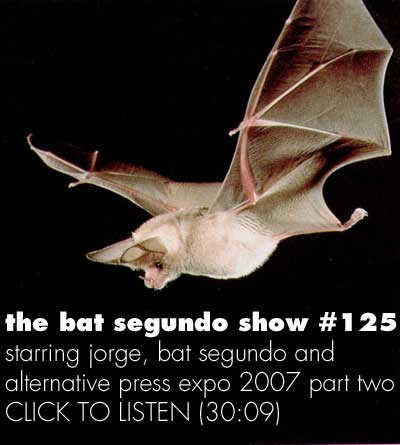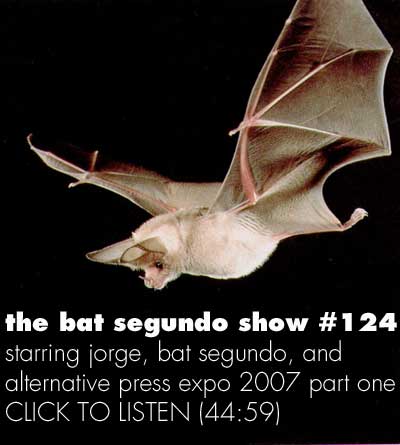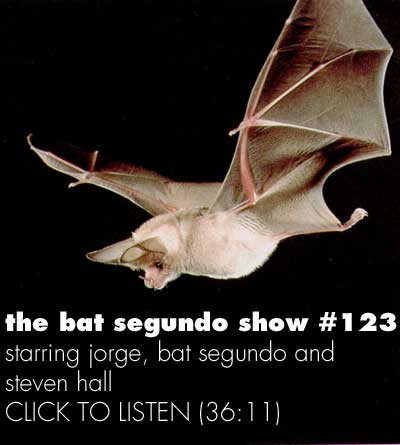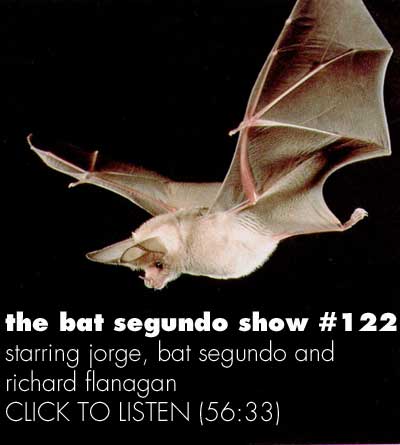CONDITION OF MR. SEGUNDO: Longing for phone numbers and fistfights.
GUESTS: Julia Wertz, Julie Walker, Levni R. Yilmaz, Bill Morse, Neil Fitzpatrick, Brandon Bird, Ming Doyle, John Rivera, Steve Fuson, Zack Corzine, Christopher Perguidi and Keith Knight
SUBJECTS DISCUSSED: Comics inspired from Craig’s List Missed Connections, unusual underwear, tactile animation, web comics vs. minicomics, an update on the Neil Jam universe, the practice of appropriating every known cultural construct, mullets, a comic book adaptation of a rock opera, family-friendly gnomes, using all five senses to experience a narrative, cannibal cooks, standing out among zombie comics, meticulously placed exclamation marks within comic book titles, grammar and comics, and how to work on comics in Los Angeles.
EXCERPT FROM SHOW:
Correspondent: So I was passing by a booth and I found some very unusual underwear designed by someone here. Maybe you can identify yourself and explain what the purpose of this underwear is, why it exists, and why it is being offered to the public at large.
Walker: Um, my name is Julie Walker and I really wanted to put weenies onto underwear. Because it seemed like a good idea.
Listen: Play in new window | Download



